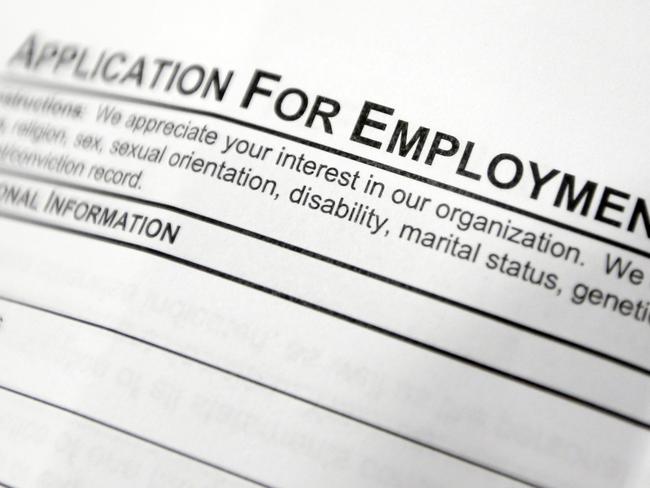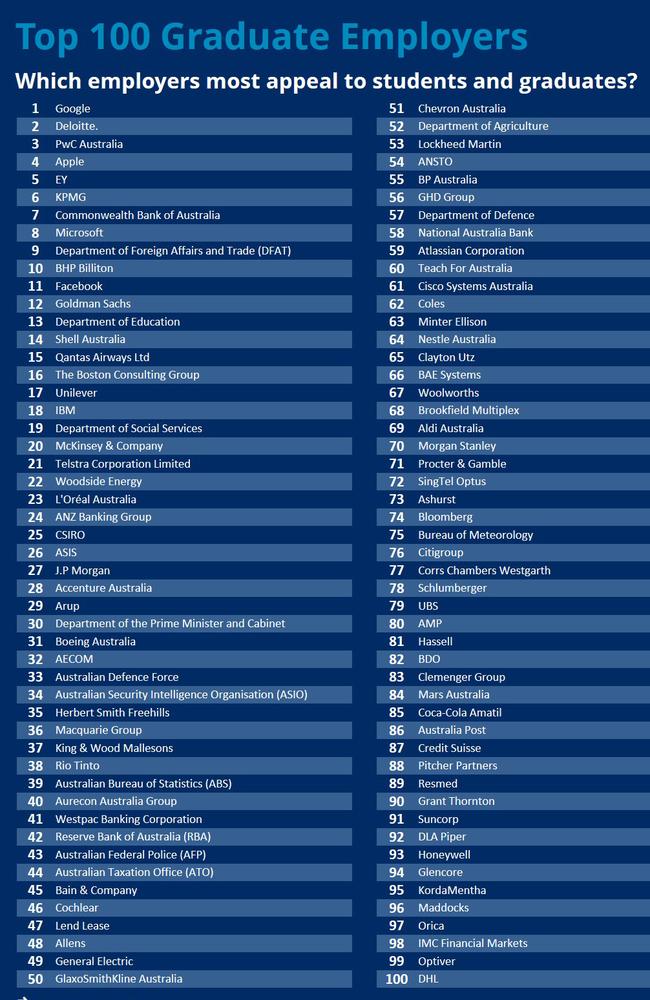How young job seekers are shooting themselves in the feet
GRADUATES have it tough, finding it just about impossible to find a good job after uni. But a new study reveals where they might be going wrong.
THE experience of a majority of Australian graduate students reads as a sob story.
It’s tough out there, firing off dozens of applications a week and being constantly knocked back; being forced to take unpaid work in order to gain experience in the industry you’ve just spent years and tens of thousands of dollars studying to qualify for; and accepting you’re likely to still be searching for your first “real” job long after donning the graduation cap and gown.
A newly published survey of more than 14,000 Australian university graduates confirms what we constantly hear about graduate struggle.
The data shows nearly half of all students expect to put in up to 20 applications before landing a job, and a further 33 per cent expect to put in more. Only 15 per cent expect a job offer upon graduating and two thirds expect they’ll still be searching three months after graduation.
But the study, released by GradAustralia, also offers some surprising insights into why young people are struggling so badly to land a job. They’re just too darn picky.
According to the survey compiled last year, more than half of these millennial jobseekers would knock back a job from a company with an image problem, and valued how the business they worked for was seen above how much they were paid.
Students were found to value social image over salary, and were willing to overlook career opportunities for this reason.
Even if the price was right, 55 per cent of students said they wouldn’t work for a company with a “bad image”.
This differed across study areas, with a third of law students happy to cop working for a less glamorous employer versus 10 per cent of finance students willing to slum it in a less reputable company.

When it came to teaching students, only 10 per cent would sign up to a bad-look business.
Prospective graduates from teaching and human welfare industries were also the least willing to make personal sacrifices for their career.
When it came to students in these areas almost half (49 per cent) disagreed with the statement “upon graduating, I will make sacrifices in my personal life for my degree”.
A significant bulk of graduating students in other areas were also found to be unwilling to make sacrifices for their jobs, though this attitude decreased as starting salaries rose. At the top end, 75 per cent of law students and 69 per cent of finance and property students said they would sacrifice their personal life for their career.
University of Wollongong director of graduate career development Martin Smith was unsurprised to hear of the study’s findings around graduates valuing their employer’s image.
“What we’re hearing a lot is more than ever graduates are looking to get involved in work that has some kind of purpose and contribution to public good,” he said.
“The challenge is that can potentially limit the kind of organisation they might be willing to work for.”
Mr Smith warned against new graduates limiting their job applications to what they consider worthy employers, advising that they could afford to be more picky later in their career.
The study showed most students (71 per cent) expected to stick with their first professional employer for less than five years, and according to Mr Smith, that’s a reasonable amount of time to slum it in a less prestigious company while building the skills they can use in their dream job.

“Working in one organisation for two, three, or four years is not a life long commitment and can be a valuable stepping stone,” he said.
“I’d be wary of young graduates being too exclusive about what they might or might not consider. This of it as learning experience to take on board for the next role. As you move through working life you become in a better position to make choices about where you might work based on your values and ethics etc.”
Mr Smith said students and graduates he had spoken to suggested young jobseekers felt more pressure than previous generations to impress with their employers’ reputations in the careers’ early stages.
“The reality is that young people live much more public lives through social media,” he said.
“Ten years ago you could working for an organisation where you were earning the dollars and getting the experience and weren’t that proud of, but now you are more open to people maybe being critical of you.
“Young people are a bit more susceptible to that sort of key criticism, and I think that’s something to be mindful of, that this may be shaping their behaviour and choices.”
GradAustralia’s survey accompanies the organisation’s release of the top 100 graduate employers, as nominated by students.
Predictably, soon-to-be graduates were drawn to esteemed global companies.
Google topped the list, followed by Deloitte, Commonwealth Bank, Apple, and professional services giant Ernst & Young.
In selecting their top employers, students cited diversity as a key requirement.
Of the students surveyed, 74 per cent said diversity was important when choosing an employs.
Students were also seeking a fulfilling career with 70 per cent saying it was more important to be fulfilled than to earn a lot.





